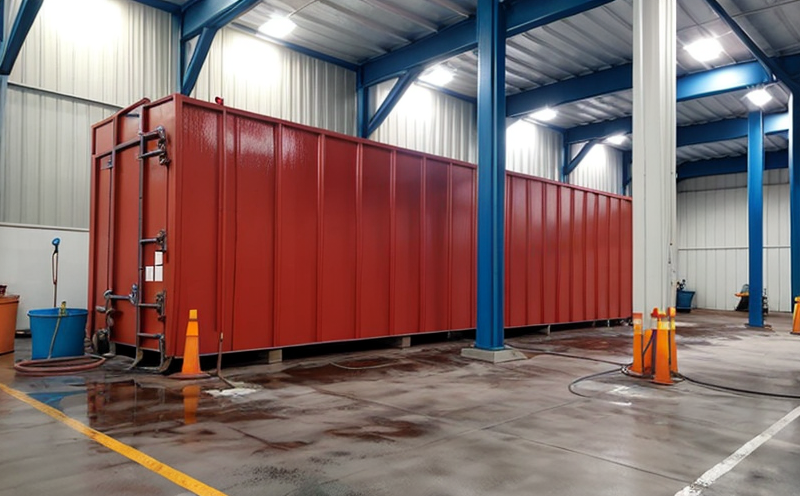ISO 6272 Impact Resistance Testing of Coatings
The ISO 6272 standard provides a method to determine the impact resistance properties of coatings, paints, and other surface treatments. This testing is crucial in industries where materials are exposed to mechanical stresses that can lead to damage from impacts or vibrations.
This test involves striking a coated specimen with a specified mass and velocity impact hammer at various points across its surface area. The goal is to assess the coating's ability to resist cracking, chipping, or flaking under these conditions. This information is vital for ensuring that coatings meet safety standards and perform optimally in real-world applications.
The test procedure typically begins with selecting an appropriate specimen size and shape based on the application requirements. Specimens are prepared according to ISO 6272 guidelines, which may involve applying a specified thickness of coating over a substrate material like steel or aluminum.
Once prepared, specimens undergo conditioning to ensure they reach equilibrium conditions before testing. This step is critical as it helps eliminate any inconsistencies due to hydration or temperature variations affecting the test results.
The actual impact resistance testing follows strict protocols outlined in ISO 6272. An impact hammer strikes different areas of the specimen at predetermined intervals and angles, simulating potential real-world impacts encountered during use. The location, angle, mass, and velocity of each strike are carefully controlled to ensure consistent results.
After all tests have been conducted, the specimens are inspected for any signs of damage such as cracks, chips, or flaking around impact points. Any defects found must be documented thoroughly so that they can later be used by quality control teams when making decisions about batch acceptance or process adjustments.
The results from this testing provide valuable insights into how well a particular coating will perform under actual usage conditions. Industries relying heavily on protective coatings, such as automotive manufacturing, aerospace engineering, and construction, benefit greatly from knowing exactly what levels of impact resistance their products possess.
Understanding the performance characteristics of these materials allows manufacturers to make informed decisions about selecting appropriate coatings for specific applications. By adhering strictly to ISO 6272 standards during production processes, companies can ensure consistent quality across batches and batches while also meeting regulatory requirements.
In summary, ISO 6272 impact resistance testing plays a pivotal role in ensuring that industrial coatings meet stringent performance expectations. Through rigorous evaluation methods, this standard helps maintain high levels of reliability and safety within various sectors dependent upon protective coverings.
Quality and Reliability Assurance
The testing process adheres strictly to ISO 6272 standards ensuring accurate results.
All samples are prepared according to specified requirements before undergoing conditioning procedures.
Impact hammers strike specimens at precise locations, velocities, and angles as dictated by the standard.
Specimens are inspected meticulously for any signs of damage post-testing.
By implementing these stringent quality assurance measures, our laboratory guarantees reliable data that can be trusted by industry professionals.
Customer Impact and Satisfaction
Implementing ISO 6272 impact resistance testing ensures customers receive accurate assessments of their coating products. This leads to higher customer satisfaction because it provides them with confidence in knowing they are getting reliable information about the performance capabilities of these materials.
Such data is essential for manufacturers looking to improve product quality or troubleshoot issues during development stages. For procurement teams, having access to consistent and accurate testing results helps streamline decision-making processes when selecting suppliers who meet strict criteria.
Environmental and Sustainability Contributions
Incorporating ISO 6272 impact resistance testing into industrial manufacturing workflows has several positive environmental impacts. For instance, by ensuring that coatings are robust enough to withstand harsh conditions without degradation, there is less waste generated from frequent replacements due to failures.
Additionally, this testing contributes towards sustainable practices by helping companies identify the most effective and durable coating solutions early on in their development cycles. This reduces unnecessary resource consumption throughout product lifecycles.





